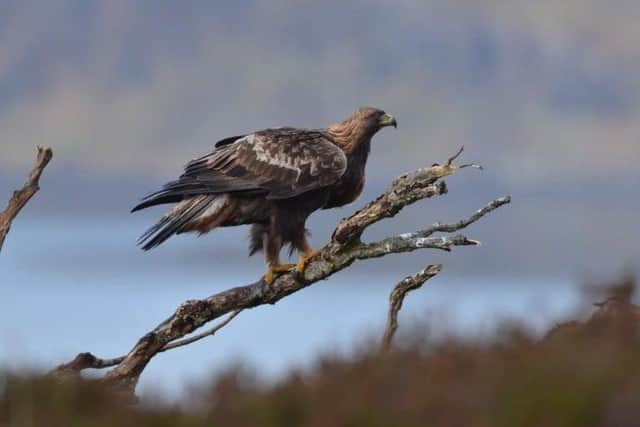Ivory jewellery, fur coats and animal skin handbags seized during police visits to 300 businesses in first 2 months of year-long wildlife crime crackdown
Items including ivory jewellery, fur coats and animal skin handbags were seized on suspicion of being sold illegally.
The work, which started in October and ran until early December, kicked off a 12-month campaign called Operation Wingspan which will target seven wildlife crime priorities set by the UK Wildlife Crime Tasking and Co-ordination Group and the National Wildlife Crime Unit.
Advertisement
Hide AdAdvertisement
Hide AdDuring the first phase, officers visited premises including antique dealers, retro clothes and pet shops across Scotland to advise owners and provide information about potential contraventions of the Convention on International Trade of Endangered Species (CITES).


This activity has been supported by an international police and border agencies enforcement operation coordinated by INTERPOL and the World Customs Organization (WCO) to tackle the Illegal trade in protected and endangered species.
Other priority areas for wildlife crime in Scotland over the next year will include badger persecution, bat crime, freshwater pearl mussel poaching, deer poaching, hare coursing, fish poaching, raptor persecution and cyber-enabled wildlife crime.
Police in the Highlands confirmed today that a bird of prey (red kite) found dead in the Ruthven area, near Moy, in October was poisoned with a banned pesticide. They have appealed to any members of the public with information to come forward.
Badger persecution
The second phase of Operation Wingspan, running now until the end of January next year, will tackle badger persecution.
The charity Scottish Badgers will be working with police to support officer training and identify and protect vulnerable sites. A spokesperson from Scottish Badgers stressed that badgers and their setts have legal protection and it is an offence to cause damage or disturbance in any way to both.
Detective Chief Superintendent Gary Cunningham, lead for Wildlife Crime, Police Scotland, said: “Most shop owners we visited during this first phase of our campaign recognised their responsibility in preventing the trade in endangered species.
“While a number of items were seized, these are undergoing tests to establish their legality.
Advertisement
Hide AdAdvertisement
Hide Ad“Over the course of the next 10 months we will be focusing on each of the wildlife crime priorities, working with our partners and within local communities to raise awareness, protect wildlife and prevent crime.
“Scotland’s vast, beautiful habitat is home to internationally renowned species that attract thousands of nature lovers and tourists every year. However, there are those who seek to either destroy this natural habitat or kill protected species illegally for their own personal gain or even ‘sport’.
“Crimes committed against wildlife are often cruel and barbaric, from using poisons or snares to hunting deer or badgers with dogs - the injuries they inflict can often result in slow, painful deaths."
DCS Cunningham also said that reports of wildlife crime have “doubled” during lockdown, adding: “Increased reporting is to be welcomed but we will continue to work closely with a wide range of partner organisations to reduce the harm to species targeted by criminals and the communities who rely on them for employment and tourism across Scotland.”
For further information about wildlife crime in Scotland visit the Police Scotland website.